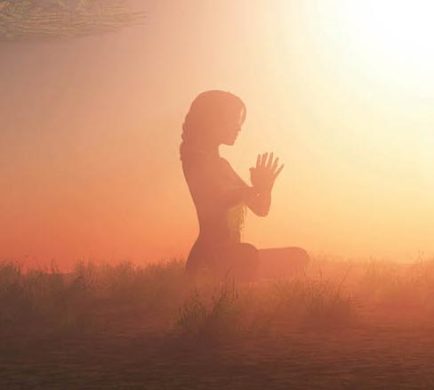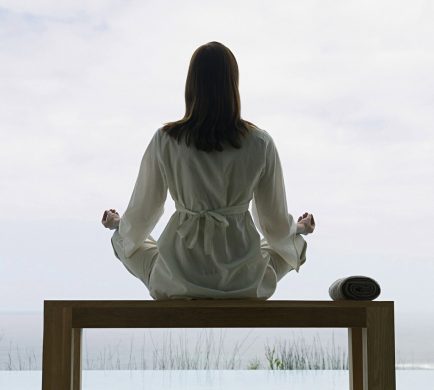There are a lot of voices in our lives. But there’s one voice that never leads us astray and it’s inside all of us. All of our regrets come from ignoring this voice. We choose to listen to other voices: friends, teachers, siblings, celebrities, etc. Until we learn to listen to the voice within, we’re addicted to these external voices. Listening to that voice is the difference between happiness and misery, wonderful memories and heartrending regrets.
The Rocking Chair Prophet is a transformational story about reclaiming that voice and the unmitigated joy that comes from following it. After an unspeakable tragedy devastates his life, Daniel, a thirty-three-year-old suburban man, disappears into the mountains. Years later, he reemerges filled with uncommon wisdom and other extraordinary gifts. From that day on, people travel from far and wide to meet with Daniel, who sits on his rocking chair, meeting with visitors, and helping them explore their deeply personal questions. These questions lead to series of epic conversations that traverse life’s quintessential topics: love, suffering, health and well-being, education, work, money and things, spirituality, regrets, depression, ambition, nature, parenting, midlife crisis, choices, our hopes and dreams, the meaning of life, and enduring friendship.
The Rocking Chair Prophet is a rich exploration of life and the human condition. It’s an invitation to rediscover yourself and reorient your life. Matthew Kelly has masterfully woven into the story a piercing wisdom that is thought-provoking on a life-changing scale. It is stunning that one book can have something so meaningful to say on so many topics. This is destined to be a book readers return to time and again, a book that speaks to us anew in every season of life.
The story is about the reader; it’s about you.
The coffee shop was alive than ever as Daniel walked through the door. There were people everywhere. His eyes met Ezra’s behind the counter, and they smiled with the uncommon joy of two men following their destinies.
Ezra motioned toward the corner, and Daniel noticed a large empty chair. As he approached it, a hush came over the place. Relaxing into the big, comfy chair, Daniel glanced around. The people looked at him expectantly, their eyes full of hope. “What should we talk about?” he asked casually. “Speak to us about LOVE,” an anonymous voice called out. “Ah, yes,” Daniel murmured almost imperceptibly. “Never has something so crucial to the human experience been so misunderstood.”
“Love ennobles us. The very nature of love is soul-expanding. It nourishes our hearts, minds, bodies, and souls.”
“Romantic love dominates the conversation in our culture. But romantic love is a poor guide to the many worlds of love and a distorted lens through which to understand the essence of love.”
“The idea of falling in love endears us to the notion that love is easy and pleasurable, but what we call ‘falling in love’ is not love. Loving someone and being in love may collide at times, but they are not the same thing.”
“Falling in love comes with feelings of forever, but feelings are unreliable and unsustainable. Any relationship based on feelings alone will, therefore, be unreliable and unsustainable. Feelings, by their very nature, are fleeting, and so any effort to make the ‘in love’ phenomenon last is doomed to fail. Our desire to make something last forever that will inevitably end is a delusion that leaves us unprepared for a sustainable relationship.”
The people seemed to lean closer to Daniel as the conversation unfolded. The comforting aroma of coffee drifted through the air. Occasionally, the delicious scent of a fresh batch of cakes or cookies would waft over, and Daniel’s mouth would water. “Two people fall in love, but as time passes, you discover that he isn’t all you thought he was, and he discovers that you aren’t all he thought you were. Together, you realize that you are each fragile, imperfect, wounded, and yet wonderful. At that moment, you are on the threshold of togetherness, confronted by this question: Do we want to be fragile, imperfect, wounded, and wonderful together?”
Daniel was about to continue when he sensed someone wanted to ask a question. It came from a young woman standing at the counter by the espresso machine. “What assumptions do we make about love that limit us from experiencing it?” she asked.
“The first assumption we make is in thinking we know what love is, or even what the word love means, and that everyone agrees on a definition. Socrates revolutionized philosophy by beginning the discussion of each new topic with a simple question: What is it? So, let us follow in his footsteps: What is love?” “It is written: ‘To love is to will the good of the other.’
“Love is by its very nature focused on the other. It isn’t self-seeking. To love is to desire what is good for the other person. This has nothing to do with feelings or romance, and this realization leads us to what is common among the many types of human love. There is the love between family and friends, romantic love, and the love we have for neighbors and strangers. But the nature of love does not change. In every instance, love is to will the good of the other.”“Love is, therefore, a choice, an act of the will—not a feeling and not fate,” Daniel continued. “It’s something you do, not something that happens to you. Your decision to love may be accompanied by great feelings, but it doesn’t have to be. Love is a verb, not a noun.”
The crowd was ever so still now. Daniel studied the faces in the crowd, full of hope and longing. The stillness was broken by another question.
Every head seemed to turn at once. He recognized the voice. It was Madison, the daughter of the local wine dealer. She was standing with some friends toward the back of the store.
“How should we choose who to spend our lives with?” Madison asked. The gravitational force of her youth drew the conversation back to romantic love. Daniel sighed ever so faintly, smiled, and decided not to resist. “Our deepest desire is to love and to be loved. There are obviously many factors. Physical attraction, character and values, priorities, hopes and dreams, work ethic, ease and ability to converse, willingness to commit, and sense of humor, to name a few. But the one we often overlook is the other person’s ability to love. We unconsciously assume everyone’s ability to love is equal, but that isn’t true. Some people can run faster than others, some people are more financially astute than others, and some people can love more than others. Choose the person who can love you the most.”
A silence fell over the room now. “How will we know who can love us the most?” Madison persisted.
“Our ability to love is determined by self-possession. We can love only to the extent that we are free. Someone enslaved by addiction cannot love—their whole being is focused on attending to their addiction. They have entered into a completely self-focused state.”
“To will the good of another, to act for the good of another, to choose love requires the freedom of self-possession. Love is the generous gift of self. But to give our- selves, we must first possess ourselves. We can give our- selves only to the extent that we possess ourselves.”
“So, be careful who you allow into your heart. Who you choose to love will raise you up or tear you down. Never pledge your love to someone with no self-control. To fall in love with someone incapable
of loving you back is a life-altering tragedy, and a person with no self-control cannot love you back.”
“Love can be pleasurable and easy, but if you expect that all the time, you will become disillusioned, for love is also painful and difficult. If you look to a relationship to solve your problems, you will be
disappointed. Relationships don’t solve problems; they bring new problems, but those problems are precious opportunities for soul expansion. The difficult and unwelcome situations of relationships also hold the solutions to the unsolved mysteries in our hearts. “Love is a choice. Anyone can choose love when it’s pleasurable, and circumstances are favorable, but the person who can love you the most can also choose love amid difficult and unexpected circumstances.”
“Why is love so difficult?” Madison asked now. “It is written: ‘All things excellent are as difficult as they are rare.’ “You yearn for a love that is excellent. You know by looking around at other people’s relationships that the love you yearn for is rare. Everything rare is difficult. If it were easy, it would be common. All excellence requires rigor, discipline, and perseverance, which is why excellence is so rare.”
Daniel noticed a young man trying to get his attention. He was standing in the group with Madison, and Daniel wondered if they were together. “How can we expand our own capacity to love?” the young man asked. It was a winsome question, Daniel thought to himself. “Every act of disciplined self-control increases your capacity to love. Take the stairs instead of the elevator. Listen patiently when you’d rather not.”
Help your young brother even though it’s inconvenient. Smile joyfully at those who irritate you. Have a glass of water even though you are craving soda. Approach your work with discipline. Let someone else decide what to do or where to eat. Overlook the annoying traits of the people you live and work with. Hold your tongue when your comment adds little to the conversation. Get out of bed without delay each morning. Leave the last bite of something delicious. Deny yourself in small ways so you can possess yourself completely. This is how you expand your capacity to love and be loved.
Ezra directed Daniel’s attention toward another young woman who wanted to ask a question. Daniel invited her to speak, and she asked, “What else would you say to those of us venturing out into the world?”
“Give some thought to what life is really all about. Throughout your life, people will try to convince you that this or that is the most important thing. But life is only about one thing.”
“It isn’t about what brand of shoes you wear. It’s not about what grades you get in school. Life’s not about how big your house is or what street you live on. Life’s not about what brand of car you drive. It’s not about what football team or baseball team you support. It’s not about whether your team wins. It’s not about whether you made the football team, or might make the football team, or what position you had on the football team. Life’s not about what college you went to, might go to, or what college your kids attend. Life isn’t about these things. Life’s not about money. It’s not about power or influence. It’s not about fame. It’s not about where you vacation. It’s not about the labels on your clothes. It’s not about who you’ve dated or who you’re dating. And it’s not about who you know. Life isn’t about these things.”“Life is about love. It’s about how you love and hurt the people closest to you. It’s about how you love and hurt yourself. It’s about how you love and hurt the people who cross your path for a moment. Life is about love.”
The people were quiet, calm, and still. As they sat reflecting, Madison, the daughter of the wine dealer, reentered the conversation. “Day after day, you sit on your rocking chair visiting with people worldwide. What do you discover in those conversations?”
Daniel smiled. He loved engaging with young people in these rigorous discussions.
“The simple things we overlook often matter most in the end. Seduced by the new and complex, we condescend to the simple things that could save us from all manner of heartaches and disappointments.” “What’s an example of one of these simple things related to love and relationships?” Madison pressed in her youthful exuberance.
Daniel lowered his head and sighed almost imperceptibly. He knew many people would find his answer unsatisfactory. “Kindness. So many negative scenarios are automatically avoided if two people are kind to each other. Now, think of all the questions people ask about a potential spouse, and what do we forget to ask: Is he a kind person? Does she have a kind heart? Two kind people will always have a better relationship than two inconsiderate people. All relationships come down to kindness in the end.”







